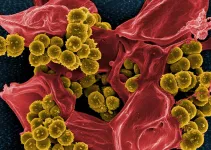(Press-News.org) WASHINGTON (May 25, 2021)--A new report summarizes the findings from a national survey of frontline health care workers during the early days of the COVID-19 pandemic, finding that many reported unsafe working conditions and retaliation for voicing their concerns to employers. The survey, launched in May 2020 by staff and student researchers at the George Washington University, provides a snapshot of the experiences of frontline health care workers providing care for millions of Americans during the pandemic.
"This survey gives a voice to US health care workers who have been on the frontlines of COVID-19," David Michaels, a professor of environmental and occupational health at the George Washington University and former administrator of the Occupational Safety and Health Administration, said. "Health care workers have valuable first-hand knowledge about this pandemic and this report offers recommendations that could help keep the U.S. on a steady course now and in the future."
There are more than 18 million health care workers in the U.S. and those on the frontlines of the pandemic have much to say about what should be done to prevent future exposures to the virus and other issues. The GW researchers developed an online survey to better understand the experiences of health care workers, including questions about working conditions and safety related concerns.
About 1,200 health care workers from all 50 states and the District of Columbia took the survey and the GW researchers analyzed the data collected during a two-month period from the beginning of May 2020 until the end of June 2020.
The following concerns were repeatedly mentioned in survey responses:
Frustration with unsafe working conditions, especially failed access to adequate personal protective equipment.
Instances of retaliation and at times bullying for voicing their safety concerns to employers.
Perceptions that employers prioritized hospital profits over worker safety and created an unhealthy work environment where workers felt devalued and threatened.
Many of the survey respondents were nurses and the majority worked in a hospital setting. For safety concerns, many health care workers mentioned the lack of personal protective equipment during the early days of the pandemic. Respondents also said they lived with the fear of losing their job if they voiced their concerns and they also expressed frustration with constantly changing employer and national guidelines.
"The responses to the survey contain important insights that cannot be gleaned from statistics alone," Nathan L. McCray, a lead author of the report, said. "Workers voiced a range of experiences during the first few months of pandemic, including those that were positive and others that were excruciating." McCray worked on the report while a research associate at the GW Milken Institute School of Public Health.
For example, some workers reported that their employer had taken steps to provide them with the protective equipment they needed to stay safe while others described being devalued or treated as disposable. Still others said they were afraid of getting sick or bringing the virus home to vulnerable family members.
"This survey was anonymous and health care workers said they appreciated having a safe space to share their concerns," Brenda M. Trejo Rosas, a research associate and doctoral student at the GW Milken Institute School of Public Health, as well as lead author, said. "Our report exposes the impact of power dynamics in the work environment."
The survey also asked frontline workers for solutions to some of the problems they described in the survey. Health care workers stressed the need for improved communication and worker protection policies based on scientific evidence.
They also recommended that the federal government step up and increase the national stockpile of personal protective equipment. Such a stockpile would help the nation better prepare for the next wave of this pandemic or a future pandemic, they said.
In addition, the health care workers who participated in the survey called for employers to treat them with respect and asked for labor rights such as time off, mental health care and zero tolerance for bullying or retaliation.
Authors of the report include McCray, Trejo Rosas, Shamet Qejvani, Shateara Hall, Bani Bhattacharya, Laura M. Neumann and Ans Irfan--all of whom worked on the survey as part of the GW Milken Institute School of Public Health Department of Environmental and Occupational Health. Multiple Milken Institute School of Public Health students also assisted with the qualitative coding and promotion of the survey.
Michaels and Melissa Perry, a professor and chair of the Department of Environmental and Occupational Health, provided guidance in producing the report. The McElhattan Foundation and the Institute for New Economic Thinking provided financial support for the survey and the report.
To obtain a copy of the report "COVID-19 National Health Worker Survey" or arrange an interview, please email kfackelmann@gwu.edu or gwmedia@gwu.edu.
INFORMATION:
Photos and Map
The Paleocene-Eocene Thermal Maximum, or PETM, was a short interval of highly elevated global temperatures 56 million years ago that is frequently described as the best ancient analog for present-day climate warming.
Fish are among the organisms thought to be most sensitive to warming climates, and tropical sea-surface temperatures during the PETM likely approached temperatures that are lethal to some modern marine fish species, according to some estimates.
But newly discovered fish fossils from an eastern Egyptian desert site show that marine fishes thrived in at least ...
A study by Monash University and Alfred Health found a 70 per cent reduction in one type of human papillomavirus (HPV) in gay and bisexual men after the implementation of the school-based HPV vaccination program.
The HYPER2 study, published in The Lancet Infectious Diseases, and led by Associate Professor Eric Chow, found there was a significant reduction in all four vaccine-preventable genotypes in gay/bisexual men aged 16-20 years following the introduction of the vaccine for boys in 2013.
Australia is one of the first and few countries that have both boys and girls vaccination programs for ...
It is said that 10 to 15% of the world's agricultural production loss is caused by diseases, which is equivalent of the food for about 500 million people. And since 70-80% of this plant disease is caused by filamentous fungi, protecting crops from filamentous fungi is an important issue in effectively feeding the world population. In order for pathogenic fungi to infect plants, they must break through the epidermal cells of the plant and invade the interior. In other words, plant epidermal cells act as the first barrier to stop the attack of pathogenic fungi in the environment. So what kind of defense functions do ...
In the last year, one thing has become clear: we cannot live life without risk. In fact, every part of our daily routines became subject to analysis: How risky is the action and is its value worth the potential cost?
Risk analysis, though seemingly more ever-present in our thoughts today, has always been a part of how we operate and how the systems around us work. As new pressures, such as climate change, deepen, the accuracy and reliability of risk analysis models regarding issues as basic as the cleanliness of our drinking water have become more important than ever.
USC ...
A study published today in Scientific Reports suggests that new health challenges may be emerging as a result of conservationists' success in pulling mountain gorillas back from the brink of extinction.
The study, the first species-wide survey of parasite infections across the entire range of the mountain gorilla, was conducted by an international science team led by the Institute of Vertebrate Biology, Czech Academy of Sciences; University of Veterinary Sciences Brno, Czech Republic; Gorilla Doctors; and the Dian Fossey Gorilla Fund. The work was conducted in collaboration with the protected area authorities of Rwanda, Uganda and the Democratic Republic of Congo (the Rwanda Development Board, the Uganda Wildlife Authority and l'Institut Congolais pour la Conservation de la Nature, respectively).
All ...
Slow slip earthquakes, a type of slow motion tremor, have been detected at many of the world's earthquake hotspots, including those found around the Pacific Ring of Fire, but it is unclear how they are connected to the damaging quakes that occur there. Scientists at The University of Texas at Austin have now revealed the earthquakes' inner workings using seismic CT scans and supercomputers to examine a region off the coast of New Zealand known to produce them.
The insights will help scientists pinpoint why tectonic energy at subduction zones such as New Zealand's Hikurangi subduction ...
Patients who suffer from REM sleep behaviour disorder have altered blood flow in the brain, which can lead to a lack of oxygen in the brain tissue. In the long term, this may cause symptoms of Parkinson's disease. This is shown by research from Aarhus University and Aarhus University Hospital.
Do you sleep restlessly and flail your arms and kick out in your sleep? This could be a sign of a disorder associated with diseases of the brain. Researchers from AU and AUH have examined whether the sleep disorder RBD - which is also known as Rapid Eye Movement Sleep Behaviour Disorder - may ...
An investigation carried out by the astrophysicists of the Instituto de Astrofísica de Canarias (IAC) ?ofia Chrobáková, a doctoral student at the IAC and the University of La Laguna (ULL), and Martín López Corredoira, questions one of the most interesting findings about the dynamics of the Milky Way in recent years: the precession, or the wobble in the axis of rotation of the disc warp is incorrect. The results have just been published in The Astrophysical Journal.
The Milky Way is a spiral galaxy, which means that it is composed, among other components, of a disc of stars, gas and dust, in which the spiral arms are contained. At first, it was thought that the disc was ...
The bacterium Staphylococcus epidermidisis primarily a harmless microbe found on the skin and in the noses of humans. Yet some strains of this species can cause infections - in catheters, artificial joints, heart valves, and in the bloodstream - which are difficult to treat. These bacteria are often resistant to a particularly effective antibiotic, methicillin, and are among the most feared germs in hospitals. How these usually harmless skin microbes become deadly pathogens has been unclear up to now.
An international research team has now discovered what distinguishes peaceful S. epidermidis microorganisms from the many dangerous invaders. The scientists have identified a new gene cluster that enables the more aggressive bacteria to produce additional structures in their cell ...
DURHAM, N.C. -- Smartwatches and other wearable devices may be used to sense illness, dehydration and even changes to the red blood cell count, according to biomedical engineers and genomics researchers at Duke University and the Stanford University School of Medicine.
The researchers say that, with the help of machine learning, wearable device data on heart rate, body temperature and daily activities may be used to predict health measurements that are typically observed during a clinical blood test. The study appears in Nature Medicine on May 24, 2021.
During a doctor's office visit, a medical worker usually measures a patient's vital signs, including their height, weight, ...




